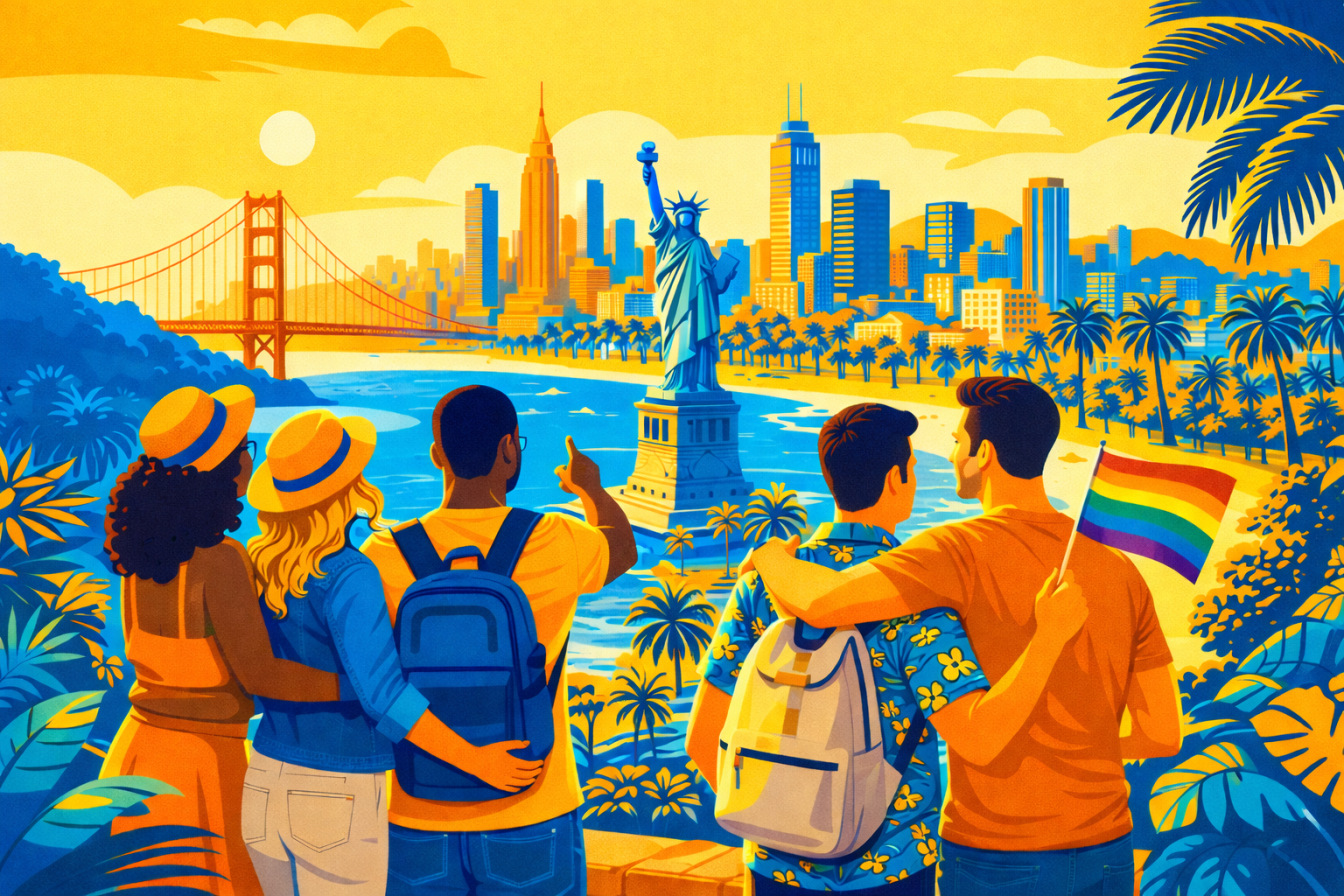5 LGBT Historical Landmarks Every Traveller Should See
5 LGBT Historical Landmarks That Every Traveller Should Explore
From iconic protest sites to poignant memorials and pioneering cultural institutions, the world is rich with places that have shaped LGBT+ history. Visiting these locations isn’t just about ticking off a travel list—it’s about understanding our shared past and standing in the places where change happened. These LGBT historical landmarks serve as powerful reminders of courage, resistance, and love. Whether you’re a seasoned explorer of gay holiday hotspots or considering your first LGBT-focused getaway, these five destinations will inspire you.
Why LGBT Historical Landmarks Matter When You Travel
The stories of our community deserve to be seen and remembered. While mainstream history often omits queer voices, these landmarks are physical proof that we’ve always been here. Visiting them can be deeply moving, educational, and empowering. More than that, they show how diverse and resilient LGBT+ people have always been.
Each destination we highlight here offers something different—from civil rights history to artistic rebellion. So let’s dive into five places where your footsteps follow those of heroes.

Jamie Says:
"As someone who's built a travel business around genuine inclusivity, I've always believed that knowing our history adds depth to our journeys. These landmarks aren’t just buildings—they’re our stories in stone."
New York City, USA – The Stonewall Inn
No list of LGBT historical landmarks is complete without Stonewall. This humble bar in Greenwich Village became the epicentre of a movement when the patrons resisted a police raid in June 1969. The Stonewall Riots sparked global momentum for LGBT+ rights and gave birth to Pride as we know it.
A visit to Stonewall today is like stepping into a living memorial. Inside, you’ll find plaques, photos, and bartenders who know their history. Just outside, Christopher Park features the first public monument to LGBT+ rights.
How Gay Friendly is New York City?
- Homosexuality legal since: 1980 (decriminalised statewide in 1980)
- Same-sex marriage: Legal since 2011
- Anti-discrimination laws: Yes, based on sexual orientation and gender identity
- Employment protections: Comprehensive state-level protections
- Equal age of consent: Yes
- Public opinion: Strongly supportive, especially in NYC
Where to stay:
- The Walker Hotel Greenwich Village – Stylish boutique hotel near Stonewall. → Ask us about our exclusive NYC Pride package offers.
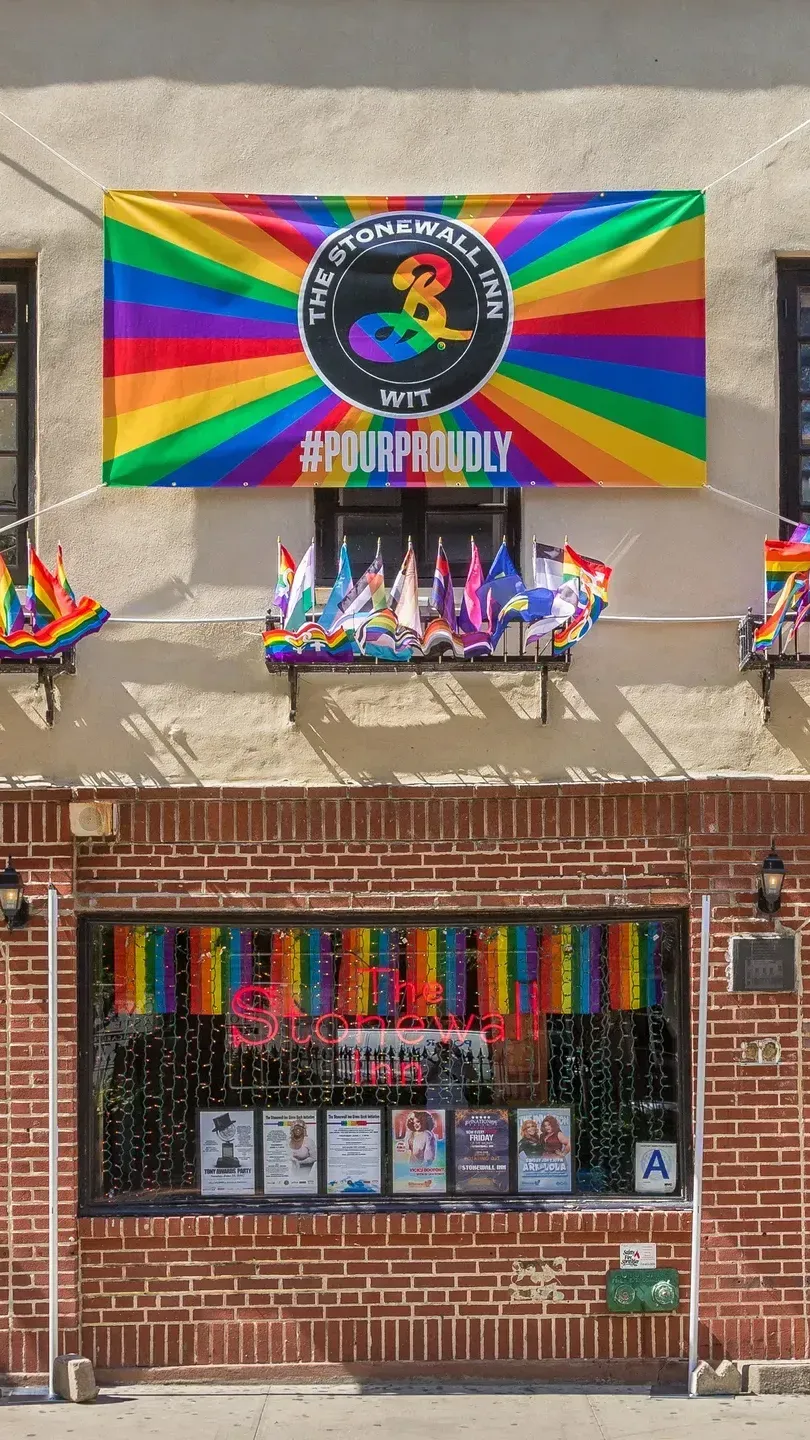
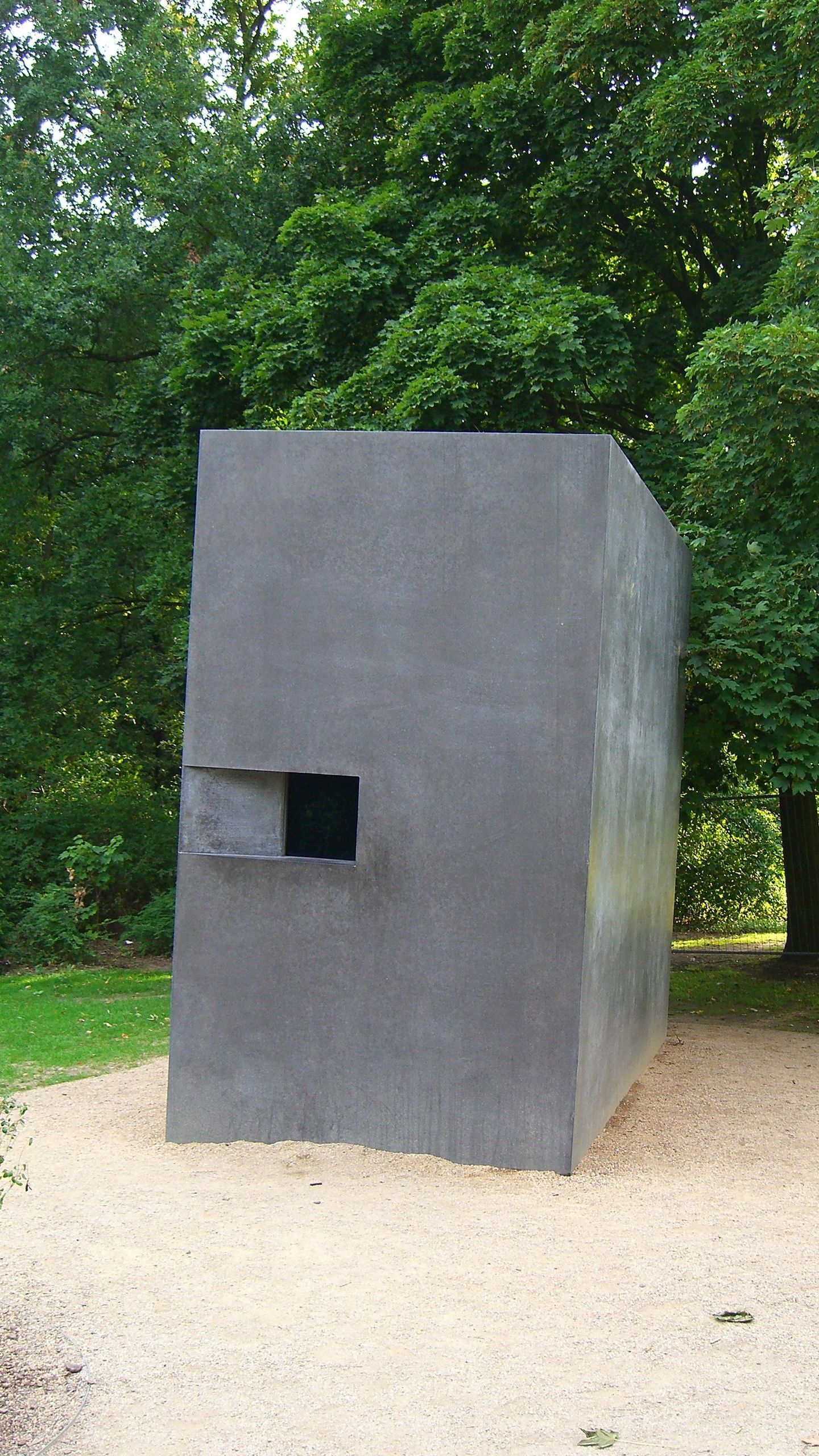
Berlin, Germany – The Schwules Museum and Memorial to Homosexuals Persecuted Under Nazism
Berlin is home to two essential LGBT historical landmarks. First is the Schwules Museum, the world's first museum dedicated to LGBT+ history, culture, and art. Since opening in 1985, it has showcased exhibitions that celebrate and challenge in equal measure.
Second, and deeply moving, is the Memorial to Homosexuals Persecuted Under Nazism. Located in Tiergarten near the Holocaust Memorial, this solemn concrete cube holds a screen that plays a video of same-sex couples kissing. It’s a sobering tribute to those who suffered under Nazi rule.
How Gay Friendly is Berlin?
- Homosexuality legal since: 1969 (with full decriminalisation in 1994)
- Same-sex marriage: Legal since 2017
- Anti-discrimination laws: Yes, protected under federal law
- Employment protections: Strong protections in place
- Equal age of consent: Yes
- Public opinion: Berlin is widely considered one of the most gay-friendly cities in the world
Where to stay:
- Axel Hotel Berlin – A well-known gay hotel chain with a modern, adult vibe. → Contact us for offers on LGBT-friendly stays in central Berlin.
Amsterdam, Netherlands – Homomonument
Built in 1987, the Homomonument in Amsterdam was the world’s first public monument to gay and lesbian people persecuted because of their sexuality. Its three pink granite triangles form a larger triangle, each symbolising past, present, and future struggles.
This site frequently hosts remembrance events and is a key location during Amsterdam Pride. It’s just behind the Westerkerk, close to the Anne Frank House—a reminder of how histories of persecution often overlap.
How Gay Friendly is Amsterdam?
- Homosexuality legal since: 1811
- Same-sex marriage: Legal since 2001 (first country in the world)
- Anti-discrimination laws: Comprehensive national protections
- Employment protections: Strong and enforced
- Equal age of consent: Yes
- Public opinion: Exceptionally progressive and inclusive
Where to stay:
- Hotel Mercier – Elegant and LGBT-welcoming hotel near the Jordaan district. → Get in touch for our Amsterdam cultural & Pride travel deals.
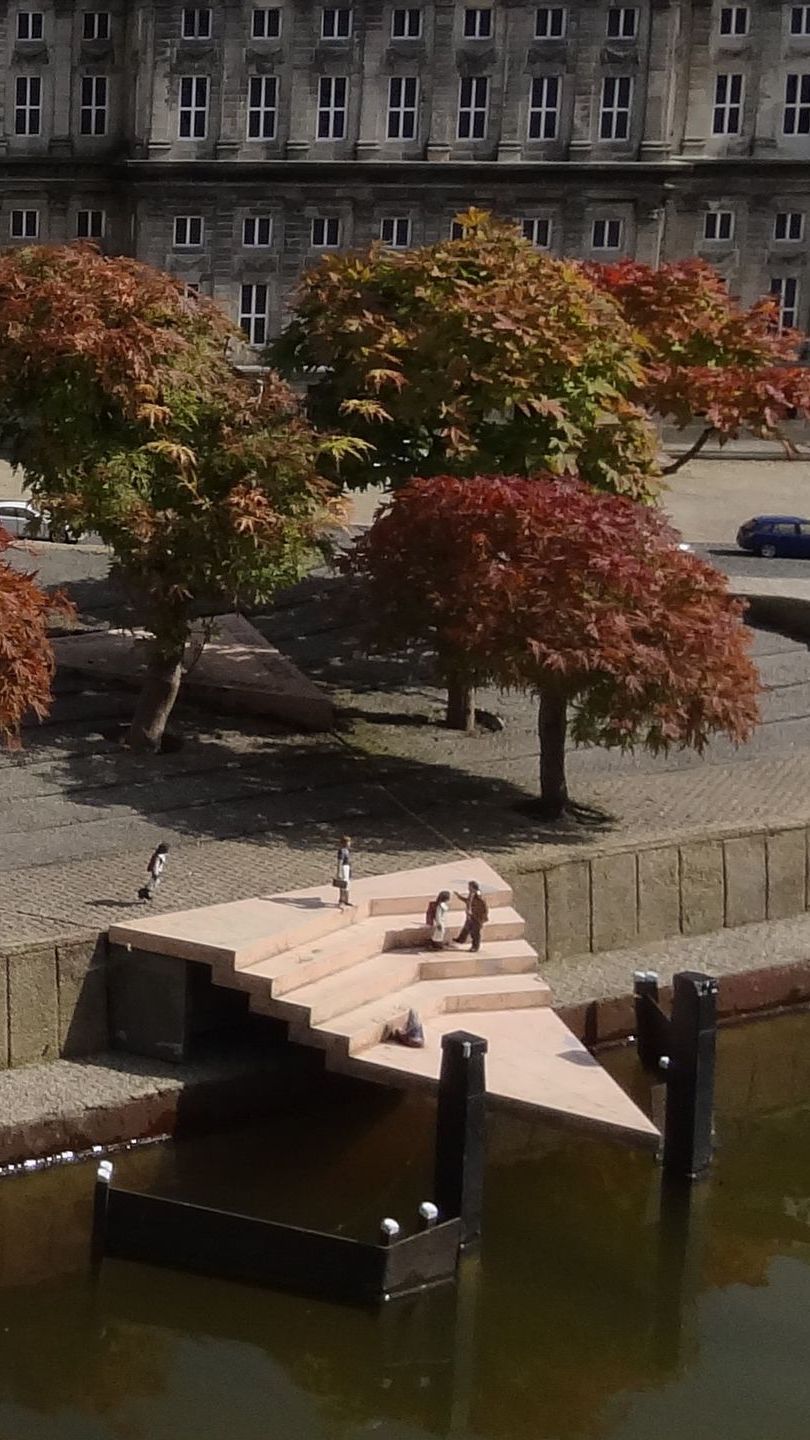
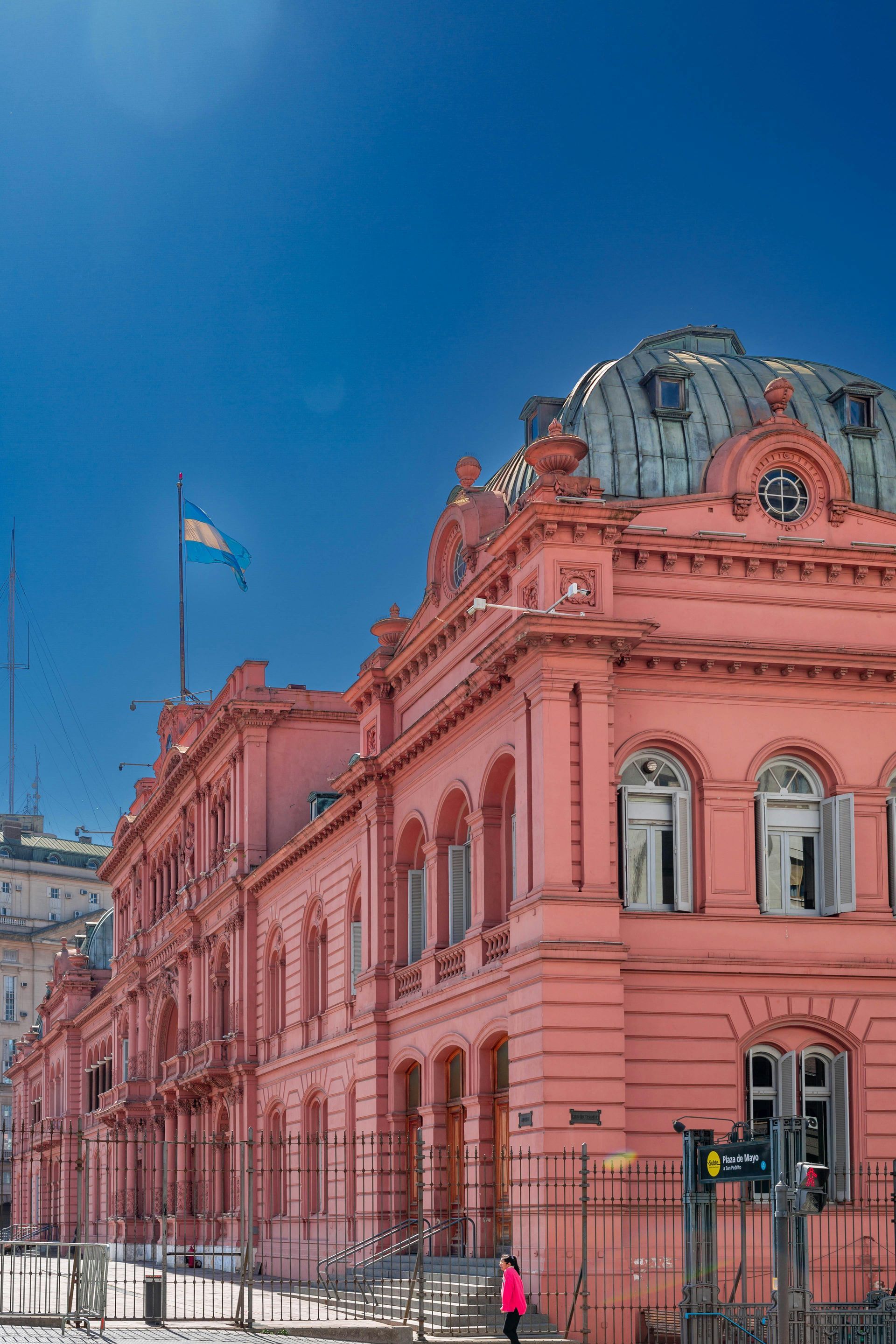
Buenos Aires, Argentina – Plaza de Mayo & Buenos Aires Queer Tour
Buenos Aires doesn’t have a singular landmark like Stonewall, but the city has embraced LGBT history with walking tours that take you through pivotal spaces. Plaza de Mayo, home to major political movements, is a starting point for many. Guides tell stories of Argentine queer icons and the role of LGBT activism during and after the dictatorship.
You’ll learn about Carlos Jauregui, Argentina’s first openly gay political activist, and how Buenos Aires became Latin America’s most progressive capital for LGBT rights.
How Gay Friendly is Buenos Aires?
- Homosexuality legal since: 1887
- Same-sex marriage: Legal since 2010 (first in Latin America)
- Anti-discrimination laws: Yes, with specific protections in some regions
- Employment protections: Yes, nationally
- Equal age of consent: Yes
- Public opinion: Largely positive, especially in urban areas like Buenos Aires
Where to stay:
- Pride Hotel Buenos Aires – Argentina's first exclusively gay hotel, complete with rooftop bar. → Speak to us about offers including guided queer history tours.
Cape Town, South Africa – District Six Museum and De Waterkant
Cape Town may surprise some as one of the world's most inclusive cities. The De Waterkant area is its de facto gay village, full of friendly venues and rainbow flags. But the real historical depth comes from the District Six Museum.
District Six was a multiracial community forcibly evicted under apartheid. While not exclusively about LGBT history, many queer people of colour lived there, and their stories are part of the narrative.
Additionally, Cape Town Pride has grown significantly, and the city's progressive constitution makes it a standout on the African continent.
How Gay Friendly is Cape Town?
- Homosexuality legal since: 1998
- Same-sex marriage: Legal since 2006
- Anti-discrimination laws: Yes, protected by the post-apartheid constitution
- Employment protections: Enshrined in law
- Equal age of consent: Yes
- Public opinion: Generally positive in Cape Town, though attitudes can vary elsewhere in South Africa
Where to stay:
- The Glen Boutique Hotel & Spa – Gay-managed luxury boutique hotel in Sea Point. → Contact us to hear about our spa & safari LGBT packages.
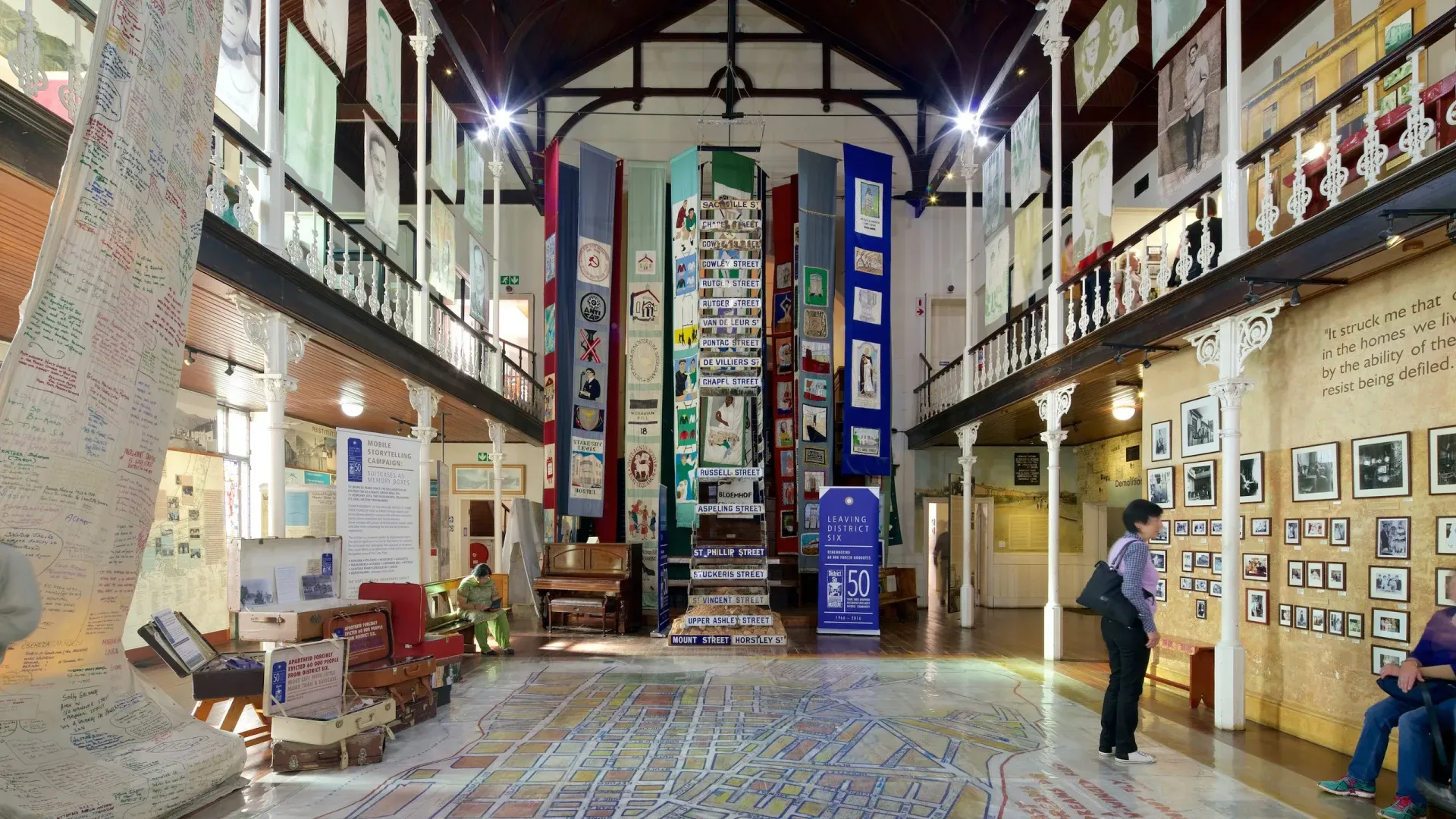
More LGBT Historical Landmarks to Explore
While our top five offer a rich starting point, there are several more LGBT historical landmarks around the world that deserve your attention. Here are three bonus locations that hold deep meaning for the community.
Paris, France – The Tomb of Oscar Wilde and Le Marais District
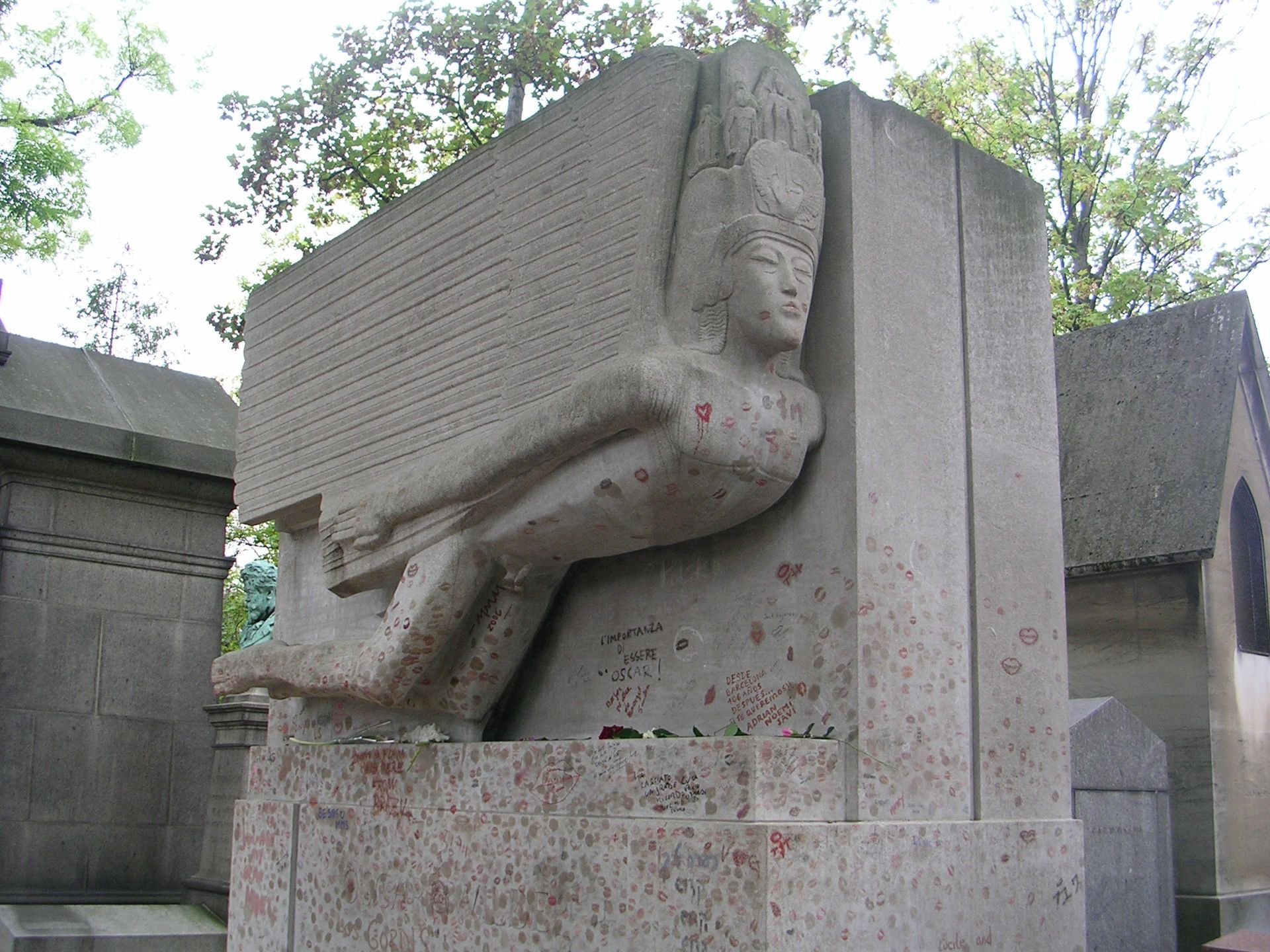
Oscar Wilde's final resting place is in Père Lachaise Cemetery, Paris. While not officially designated as an LGBT monument, it has become an informal pilgrimage site for many queer travellers. Wilde, who was imprisoned for “gross indecency” due to his sexuality, has since become a symbol of resilience and wit in the face of oppression. Visitors often leave notes, flowers, and kisses on the glass surrounding his grave.
Just a short metro ride away, the Le Marais district is Paris’ LGBT heart. This neighbourhood blends centuries of history with modern-day queer culture, from independent bookshops and cafes to chic gay bars and clubs. A walking tour through Le Marais reveals both hidden historical gems and current cultural hubs.
How Gay Friendly is Paris?
- Homosexuality legal since: 1791
- Same-sex marriage: Legal since 2013
- Anti-discrimination laws: Comprehensive national laws protect sexual orientation and gender identity
- Employment protections: Yes
- Equal age of consent: Yes
- Public opinion: Generally supportive, especially in urban areas like Paris
Where to stay:
- Hôtel Jules & Jim – A stylish, LGBT-welcoming boutique hotel in Le Marais.
→ Speak to us about curated Paris culture packages, including Le Marais tours.
Sydney, Australia – Oxford Street and the Mardi Gras Parade Route
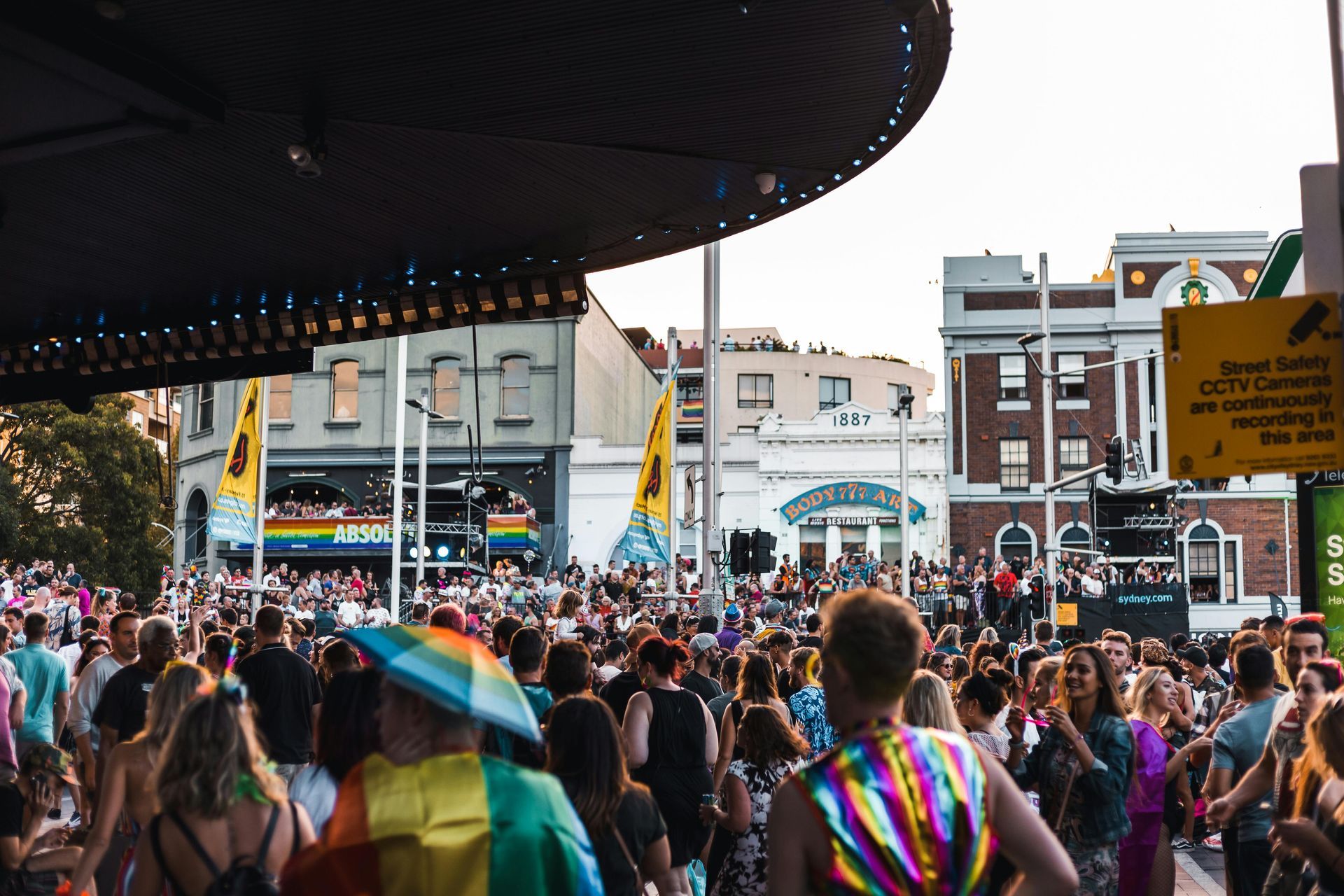
Oxford Street in Sydney is more than just a nightlife hotspot — it’s a vibrant hub with deep roots in Australia’s LGBT history. This is where the first Sydney Mardi Gras protest march took place in 1978. What began as a call for rights and visibility, met with police brutality, has now evolved into one of the world’s most celebrated Pride events.
Walking Oxford Street is like stepping through decades of community building. From gay-owned cafes to iconic venues like Stonewall Hotel (named after its NYC counterpart), it offers a powerful mix of protest history and ongoing pride.
How Gay Friendly is Sydney?
- Homosexuality legal since: 1984 (NSW)
- Same-sex marriage: Legal nationwide since 2017
- Anti-discrimination laws: Strong federal and state-level protections
- Employment protections: Yes
- Equal age of consent: Yes
- Public opinion: Overwhelmingly positive, especially in major cities like Sydney
Where to stay:
- The Pullman Sydney Hyde Park – Popular with LGBT travellers, especially during Mardi Gras.
→ Contact us for exclusive Mardi Gras travel deals and inclusive event packages.
London, UK – Alan Turing Memorial and The Admiral Duncan Pub
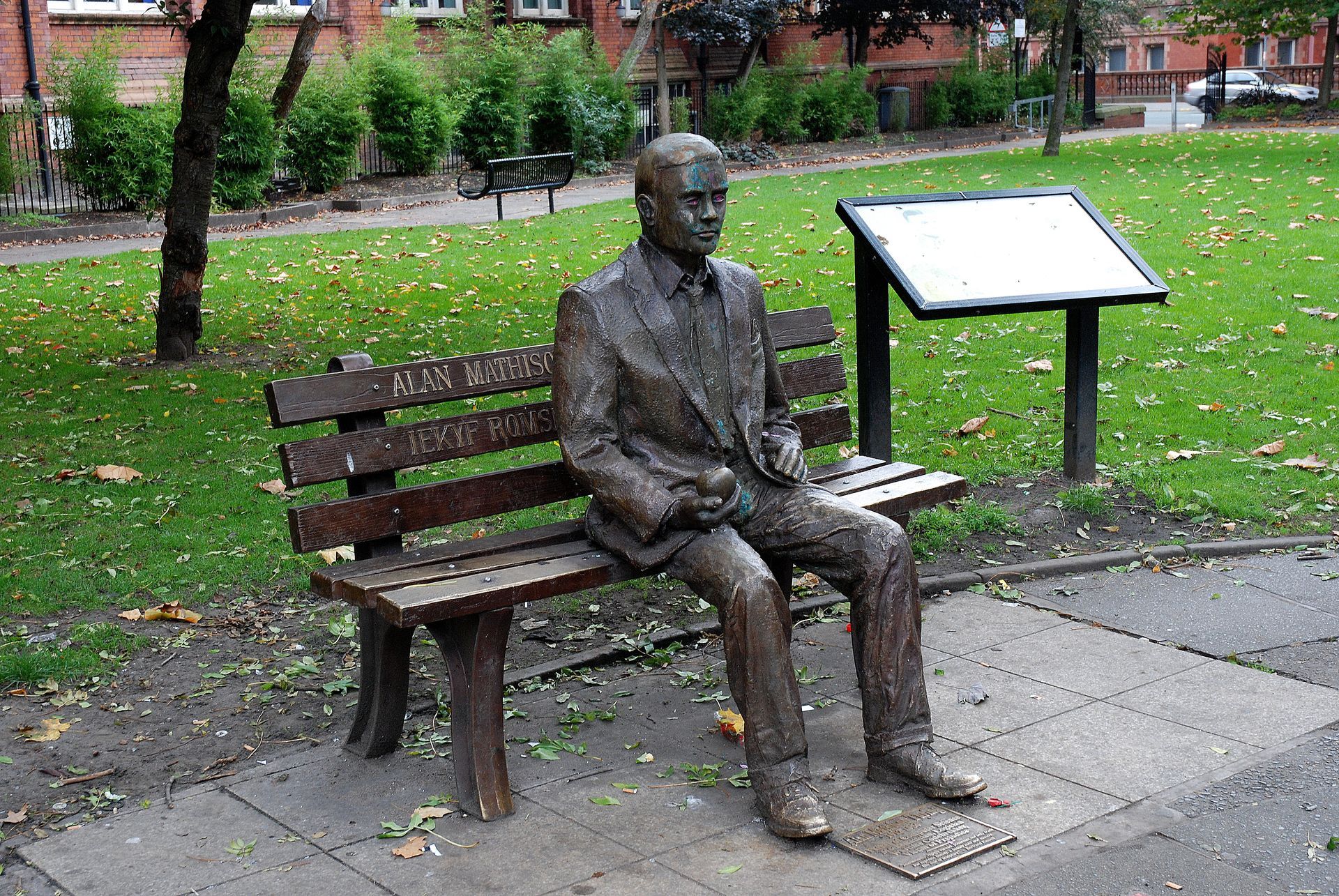
Closer to home, London holds its own powerful LGBT historical landmarks. The Alan Turing Memorial in Sackville Gardens honours the brilliant mathematician whose code-breaking helped win WWII. Turing was later chemically castrated for being gay and died tragically. His story has since helped reform outdated laws and inspired national reflection.
In Soho, The Admiral Duncan pub is both a vibrant gay bar and a place of remembrance. It was the site of a 1999 nail bomb attack targeting the LGBT community. Today, it stands resilient, proudly flying the rainbow flag in defiance of hate.
How Gay Friendly is London?
- Homosexuality legal since: 1967 (England and Wales)
- Same-sex marriage: Legal since 2014
- Anti-discrimination laws: Comprehensive protections under the Equality Act 2010
- Employment protections: Yes
- Equal age of consent: Yes
- Public opinion: Very positive, especially in major metropolitan areas like London
Where to stay:
- The Z Hotel Soho – Trendy and perfectly located for Soho nightlife and LGBT landmarks.
→ Ask about our London history & theatre break packages for LGBT travellers.
Protections When You Book with Wide Awake Holidays
When you travel with Wide Awake Holidays, you’re not just getting a holiday—you’re gaining peace of mind. As a UK-based, gay-owned travel company, we are members of Protected Trust Services and hold an ATOL licence.
Here’s what that means for you:
- 100% financial protection on every booking.
- Tailor-made holidays that include Supplier Failure Insurance and Scheduled Airline Failure Insurance.
- Access to 200+ suppliers, including LGBT-owned and gay-exclusive hotels and experiences.
- Support from a real human who understands the LGBT+ travel experience.
And yes, we can also help if you’re based outside the UK, such as in the United States or Europe.
We also stay informed on global LGBT+ rights and protections to help guide you to destinations where safety and inclusion come first.
The Emotional Impact of Visiting LGBT Historical Landmarks
Travel isn’t just about places — it’s about how those places make us feel. Visiting LGBT historical landmarks can be a surprisingly emotional experience. For many travellers, standing where history was made brings a sense of connection that can’t be replicated by simply reading about it.
You might feel pride when you walk through Berlin’s Schwules Museum, or deep reflection at the Memorial to Homosexuals Persecuted Under Nazism. Seeing Oscar Wilde’s tomb, or joining a walking tour in Buenos Aires, can trigger powerful thoughts about visibility, progress, and identity.
These destinations aren’t just for historians. They’re for anyone who has ever felt different. They remind us that queer people have always existed, even in times when our stories were silenced. And for younger LGBT+ travellers, these sites can be moments of affirmation: “I belong to something bigger than myself.”
Have you ever felt a lump in your throat while travelling? That’s the magic of places with meaning. When you build your holiday around visits like these, you come home with more than just photos — you come home changed.
Why These LGBT Historical Landmarks Belong on Your List
These landmarks aren’t just historical curiosities. They reflect our journey as a global community. They show where we’ve been, how far we’ve come, and where we still need to go. Visiting them doesn’t just educate you—it connects you to something bigger.
Whether you're planning a Pride holiday, a romantic city break, or an educational cultural tour, Wide Awake Holidays can help create a trip that means something to you.
Ready to Start Planning?
Ready to stand where history was made? Wide Awake Holidays will help you plan a trip that goes deeper than the typical sightseeing tour. Whether you're drawn to the revolution at Stonewall or the quiet beauty of Amsterdam's Homomonument, we tailor each itinerary to suit you.
Call us on 01495 400947 or use our easy holiday enquiry form to get started. Let’s turn your next holiday into a story worth telling.
Send an Enquiry
We will get back to you as soon as possible.
Please try again later.
Frequently Asked Questions
What are LGBT historical landmarks?
LGBT historical landmarks are places of cultural, social, or political significance to the LGBT+ community. They may include protest sites, memorials, or institutions.
Why should I visit LGBT historical landmarks when travelling?
They help you connect with the global LGBT+ community and understand our shared history. They're inspiring, educational, and often emotionally powerful.
Are LGBT historical landmarks safe to visit?
Yes. Most are in well-known cities with strong LGBT protections. As with any travel, it’s best to stay informed about local laws and customs.
Which countries have the most LGBT historical landmarks?
Countries like the USA, Germany, the Netherlands, and Argentina have a rich tapestry of sites reflecting LGBT history.
Can I book a trip to these places through Wide Awake Holidays?
Absolutely. We specialise in tailor-made LGBT+ travel and can arrange your trip to include any of these landmarks.
Are there guided LGBT+ tours available at these landmarks?
Yes. Cities like Buenos Aires and Berlin offer dedicated queer history tours led by knowledgeable local guides.
What should I know before visiting an LGBT landmark in a different country?
Check the country’s current laws and social climate. Even in progressive countries, context matters.
Are there any LGBT-only hotels near these landmarks?
Yes. Hotels like Pride Hotel Buenos Aires and Axel Hotel Berlin are exclusively or strongly LGBT-focused.
Is it okay to take photos at LGBT historical landmarks?
Usually, yes. But always be respectful, especially at memorial sites where quiet reflection is encouraged.
Does Wide Awake Holidays support LGBT travellers outside the UK?
Yes! We proudly serve travellers from the UK, US, and beyond, offering the same protections and personalised service.
Some of our Latest Offers
Discover our latest hand-picked travel offers below – automatically updated and inspired by the destinations featured in this blog.









